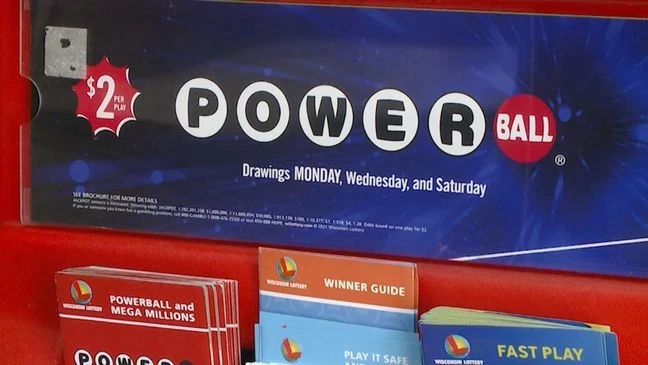The lottery has long been a source of fascination, hope, and controversy in the United States. For decades, millions of Americans have lined up at gas stations, convenience stores, and online platforms, clutching tickets that hold the promise of sudden wealth. While the odds of winning life-changing jackpots remain astronomically slim, the allure of the lottery continues to grow. Recently, reports have revealed that lottery spending across the country has reached record-breaking levels, with some states spending far more than others. This raises important questions about economic conditions, cultural attitudes, and the psychology behind gambling.
- The Rise of Lottery Spending in America
- States Where Residents Spend the Most on Lottery Tickets
- Why Americans Keep Spending Despite the Odds
- Economic and Social Implications of High Lottery Spending
- Stories from the States: Humanizing the Numbers
- Expert Opinions on the Growing Trend
- The Future of Lottery Spending in the U.S.
- Frequently Asked Questions
- Why do some states spend more on lotteries than others?
- Is lottery spending higher in low-income communities?
- Where does lottery money go?
- Are online lottery tickets contributing to the increase in spending?
- Can lottery spending be considered gambling addiction?
- Conclusion
In this article, we take a deep dive into the growing phenomenon of lottery spending. We will explore which states have the highest spending, why residents are drawn to spend so much, the implications for communities, and how experts view the long-term impact. Along the way, we will look at the statistics, stories, and expert commentary that bring this topic to life.
The Rise of Lottery Spending in America
The United States lottery industry is one of the largest in the world, generating tens of billions of dollars annually. According to the North American Association of State and Provincial Lotteries, Americans spent over $100 billion on lottery tickets in recent years. That number has only continued to rise, particularly during times of economic uncertainty.
For many, the lottery represents a quick escape from financial struggles or the fantasy of a better life. During periods of inflation or job insecurity, spending on games of chance often increases. As one economist at the University of Michigan noted, “When people feel they are losing control over their financial situation, the lottery offers them a cheap form of hope, even if it is mathematically irrational.”
This rise in spending is not uniform across the country, however. Some states see far higher participation and ticket sales than others, creating a fascinating regional breakdown of lottery enthusiasm.
States Where Residents Spend the Most on Lottery Tickets
Lottery spending varies widely depending on geography, demographics, and local culture. States in the Northeast and the South often top the charts when it comes to per capita lottery spending. For example, residents of Massachusetts consistently rank among the highest spenders, with average spending in the thousands per year. Meanwhile, states like North Dakota or Alaska see much lower lottery engagement.
Experts attribute this variation to several factors. In states where lotteries are heavily marketed and widely accessible, ticket sales tend to skyrocket. Additionally, cultural traditions and the presence of multi-state jackpots such as Powerball and Mega Millions drive participation. The data reveals a striking divide: in some communities, lottery tickets are purchased as casually as a cup of coffee, while in others, the practice remains far less common.
Why Americans Keep Spending Despite the Odds
It is no secret that the odds of winning a jackpot are shockingly low—often 1 in hundreds of millions. Yet this statistical reality does little to dampen enthusiasm. The psychology of lottery spending is rooted in human emotion and imagination.
Behavioral economists point to the “dream factor” as a powerful motivator. Even if the chance of winning is slim, the few days of imagining life as a millionaire provides a kind of entertainment value. For low-income households, the lottery also represents one of the few avenues to envision a rapid financial transformation.
This explains why research shows lottery spending is disproportionately higher among lower-income communities. Critics argue that this makes the lottery a regressive form of taxation, preying on those least able to afford it. However, supporters counter that the choice to play is voluntary, and the proceeds often fund education, public works, or community initiatives.
Economic and Social Implications of High Lottery Spending
The rise in lottery spending is not just an individual matter—it has broad social consequences. On one hand, state lotteries generate significant revenue for education, infrastructure, and healthcare programs. In many states, billions of dollars flow directly from lottery sales into school budgets.
On the other hand, critics argue that the lottery effectively exploits vulnerable populations. Studies show that households making under $30,000 per year are far more likely to purchase lottery tickets regularly compared to wealthier households. This raises ethical concerns about whether states should rely on gambling as a major source of funding for public programs.
Furthermore, excessive lottery spending can lead to personal financial strain. While the average player may spend modestly, stories abound of individuals who develop gambling addictions and spend beyond their means. Community organizations and advocacy groups have called for stronger regulations, increased financial literacy education, and better access to problem gambling resources.
Stories from the States: Humanizing the Numbers
Behind every statistic is a personal story. In Massachusetts, where residents are some of the highest per-capita lottery spenders, many locals view lottery tickets as part of their cultural fabric. One Boston resident shared that she buys scratch-offs every Friday night, not because she expects to win, but because it has become a fun ritual with her family.
In contrast, a man in Mississippi admitted that he spends hundreds each month, often hoping to escape the cycle of debt. “It’s my one shot,” he explained. “I know the odds, but I can’t help but try.” These personal accounts illustrate the complex mix of hope, entertainment, and desperation that drives spending habits.
Expert Opinions on the Growing Trend
Economists, psychologists, and policy experts are increasingly weighing in on the surge in lottery spending. Some see it as a harmless form of entertainment, provided individuals play responsibly. Others warn of the dangers of normalizing gambling on such a massive scale.
Dr. Elaine Parker, a behavioral psychologist, argues, “Lotteries thrive on the human brain’s tendency to overvalue small probabilities. It’s the same reason casinos stay profitable—people remember the stories of big winners but forget the millions of losses.”
Meanwhile, financial advisors encourage individuals to view the lottery as entertainment rather than investment. One advisor quipped, “Your retirement plan should not hinge on Powerball.”
The Future of Lottery Spending in the U.S.
As technology evolves, so does the lottery. Online platforms and mobile apps now allow players to purchase tickets instantly, increasing accessibility and convenience. Some experts predict this will only fuel further spending, particularly among younger generations who are comfortable with digital transactions.
At the same time, debates about regulation are intensifying. Should states impose spending limits? Should there be more transparency in how lottery funds are used? These questions will shape the future of the industry as both lawmakers and citizens grapple with the balance between revenue generation and social responsibility.
Frequently Asked Questions
Why do some states spend more on lotteries than others?
Lottery spending depends on factors such as marketing, accessibility, cultural traditions, and state-specific games. States like Massachusetts, Rhode Island, and Georgia often top the list due to aggressive promotions and strong cultural acceptance.
Is lottery spending higher in low-income communities?
Yes, research consistently shows that households with lower incomes tend to spend more of their earnings on lottery tickets compared to higher-income households. Critics argue this makes the lottery a regressive form of revenue collection.
Where does lottery money go?
In most states, lottery revenue supports education, public works, and other community initiatives. However, the exact distribution of funds varies by state.
Are online lottery tickets contributing to the increase in spending?
Yes, online platforms and mobile applications have made purchasing tickets easier, leading to increased participation and higher spending in many regions.
Can lottery spending be considered gambling addiction?
For some individuals, excessive lottery purchases can cross the line into gambling addiction. Organizations such as the National Council on Problem Gambling provide resources and support for those struggling with compulsive lottery play.
Conclusion
Lottery spending in the United States has soared to unprecedented levels, reshaping both individual lives and state economies. While it offers entertainment and dreams of instant wealth, it also raises pressing concerns about financial strain, social equity, and government reliance on gambling revenues.
The states where residents spend the most reveal much about cultural attitudes, economic pressures, and the universal human desire for hope. As the lottery industry expands further into the digital age, the challenge will be balancing opportunity with responsibility. Whether viewed as harmless fun or a regressive financial trap, one fact remains clear—the lottery has become deeply embedded in American life, and its impact will continue to grow in the years ahead.









